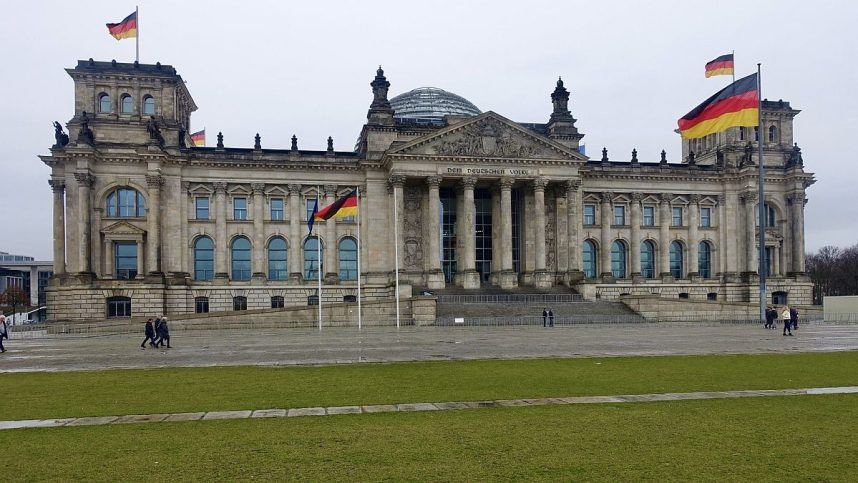German Gaming Operators Out of Luck in Fights With States
Posted on: July 20, 2023, 07:44h.
Last updated on: July 20, 2023, 11:25h.
Administrative courts in Germany are demonstrating that European Union (EU) laws don’t trump local ones. Two courts, one in Berlin and another in Düsseldorf, have rejected claims by gambling operators that tried to argue that local legislation violates established EU protocols.

In both cases, the crux of the dispute centered on the required distance needed between gaming properties. While the plaintiffs in the lawsuits weren’t identified, the outcome extends across the entire gaming spectrum.
This isn’t the first time a gaming operator has tried to claim that German laws infringed on EU laws. However, the response of both courts makes it clear that the country’s legal system is going to play by its own rules.
Berlin Holds Its Ground
The statutory minimum distance between sports betting agencies and existing gambling arcades in the state of Berlin is 500 meters (1,640 feet). This is in accordance with how the state moved forward with its gambling laws after the implementation of the Fourth State Treaty on Gambling.
With reference to this provision, the State Office for Citizens and Regulatory Affairs (LABO, for its German acronym) has rejected numerous applications from betting operators. They had sought to operate betting shops where this distance to existing gambling halls would otherwise be less than this.
The operators have tried to get Berlin to change its stance. On the one hand, they argue the permits granted to the respective gaming hall under the Gaming Hall Act and the State Treaty on Gambling are valid. Additionally, they want LABO to grant the respective betting agent permits to operate.
In particular, they refer to the fact that the minimum distances aren’t required for the protection of minors and players. They are also unconstitutional and contrary to European law, and leave sportsbooks at a disadvantage compared to the gaming halls, which were already operational before the new laws took effect.
There’s also a caveat that no two betting shops can be within 2,000 meters (6,561 feet) of each other. This is to prevent an operator from monopolizing a particular area, and was also part of the legal battle launched by two unidentified companies.
Berlin’s 4th Chamber of the Administrative Court dismissed all complaints, according to a recent announcement. It determined that Berlin, because of the treaty, has the right to establish its gaming regime however it sees fit. The court also dismissed the actions for annulment of existing licenses as inadmissible because the betting operators lacked the necessary legal standing to request it.
Düsseldorf Echoes Berlin’s Position
In Düsseldorf, betting agencies must maintain a minimum distance of 350 meters (1,148 feet) from public schools and child and youth welfare facilities. This also took effect when the latest federal gambling treaty went live.
Betting operators tried to fight the state government here as well. However, just like in Berlin, they failed to present a convincing argument.
The Administrative Court of Düsseldorf, in a separate announcement, has confirmed that the rights of betting operators and betting brokers aren’t as important as the rights of consumers. The operators can’t argue that the laws violate EU legislation, nor can they assert that they are unconstitutional. Like Berlin, Düsseldorf interprets the gaming treaty to mean that the states can establish their own rules.
The operators can try for an appeal, which would have to go to the Higher Administrative Court for the State of North Rhine-Westphalia in Münster. Based on these rulings and others, the case isn’t likely to get far.
Gaming Regulator Commissions Research
Now that Germany’s new gambling treaty and its new regulator are in place, everyone is anxious to see how the industry is doing. It wasn’t until recently that online gaming and sports betting began in the country, and an assessment is needed.
The Joint Gaming Authority (GGL, for its German acronym) has commissioned a study to conduct that assessment. It has tapped Dr. Tobias Hayer of the University of Bremen’s Institute for Public Health and Nursing Research to take the lead.
The goal of the research is to find out how well the new treaty is working, and if responsible gambling solutions are effective. The GGL didn’t indicate when the research will conclude, but explained that it expects to conduct a “comprehensive evaluation” of the treaty’s effectiveness in 2026.
Related News Articles
Kindred Faces Multimillion-Dollar Lawsuit for Targeting Polish Bettors
Apple, Google Casino App Case Heading to Ninth Circuit
Playtech and Grupo Caliente Legal Battle Escalates Over Service Fees Dispute
Most Popular
FTC: Casino Resort Fees Must Be Included in Upfront Hotel Rates
Genovese Capo Sentenced for Illegal Gambling on Long Island
NBA Referees Expose Sports Betting Abuse Following Steve Kerr Meltdown
UPDATE: Former Resorts World & MGM Grand Prez Loses Gaming License
Most Commented
-
UPDATE: Whiskey Pete’s Casino Near Las Vegas Closes
— December 20, 2024 — 30 Comments -
Caesars Virginia in Danville Now Accepting Hotel Room Reservations
— November 27, 2024 — 9 Comments -
UPDATE: Former Resorts World & MGM Grand Prez Loses Gaming License
— December 19, 2024 — 8 Comments -
FTC: Casino Resort Fees Must Be Included in Upfront Hotel Rates
— December 17, 2024 — 7 Comments
















No comments yet